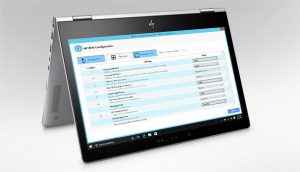Article
HP hardens EliteBook protection with Sure Click, a browser secured in virtual hardware | PC World
From the horse’s mouth
HP
Bromium
Video explaining the Bromium micro-virtualisation approach (Click / Tap to play)
My Comments
A very common attack gateway that has been identified for endpoint computing devices, especially regular desktop or laptop computers, is the Web browser. It is because the browser is essentially the “viewport” to the Internet for most reading-based tasks.
But most recent browser versions have implemented software-based “hardening” against the various Internet-based attacks. This is in conjunction with the main desktop operating systems being “hardened” through each and every update and patch automatically applied. These updates facilitate practices like “sandboxing” where software of questionable provenance is effectively corralled in a logical quarantine area with minimal privileges so it doesn’t affect the rest of the system.
HP and Bromium have developed a “virtual hardware” approach where a browsing session can take place in a separate “logical computer”, a concept being driven by the multi-core CPUs that are the hub of today’s computer systems. This can provide improved security by using the hardware approach that is effectively with its own operating system and has the data destroyed at the end of a session. Here, it restricts the effect of malware like ransomware picked up during a “drive-by” download because the software can only run within that separate “logical computer”.
At the moment, this feature is being initially rolled out to the Elitebook x360 G2 convertible business laptop but will trickle out across the next generation of “Elite” premium manageable business computers to be launched in the second half of the year. It will work only with Microsoft’s Internet Explorer and Google’s open-source Chromium browser at the moment. What I would like to see happen is that this feature is able to be “trickled-down” to HP’s consumer, education and small-business product ranges but in a more “self-service” manner because households, small businesses and volunteer-driven community organisations could equally benefit from this feature.




